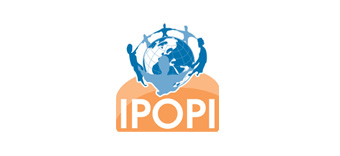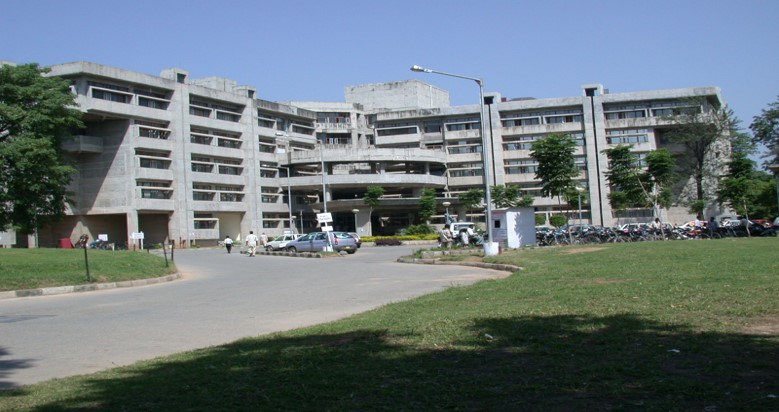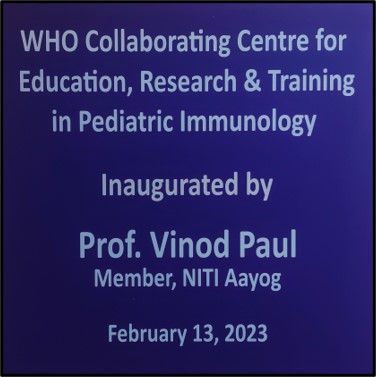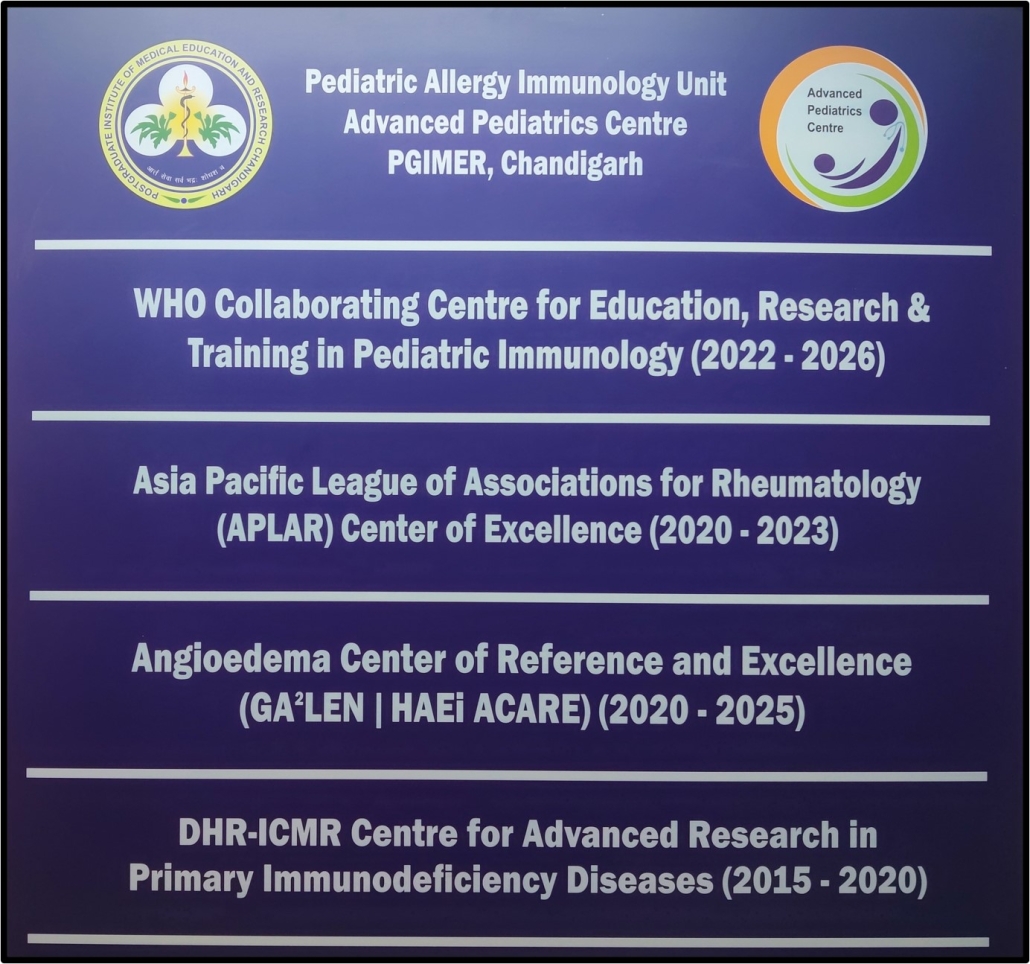March 15, 2023
Paediatric Allergy Immunology Unit at PGIMER, Chandigarh, India accredited as a World Health Organization Collaborating Centre for Education, Research and Training in Paediatric Immunology
The Post Graduate Institute of Medical Education and Research (PGIMER), Chandigarh, is a federally funded not-for-profit tertiary care referral and teaching hospital in North-West India. The Paediatric Allergy Immunology Unit at the Advanced Paediatrics Centre, PGIMER, was established in the year 1993 and is the first and, so far, the only specialised Paediatric Immunology Unit in India. The unit was among the first few centres in the country to diagnose and start treating children with Primary Immunodeficiency Diseases (PIDs). In the 1990s, the diagnosis of PIDs was established based on clinical manifestations supplemented by a few laboratory investigations. Genetic analyses were done on individual patients for diagnostic purposes through collaborative efforts with overseas laboratories specialising in PIDs.
PGIMER recognised as the first FPID centre in India
In 2011, Prof. Sudhir Gupta, President of the Foundation for Primary Immunodeficiency Diseases (FPID) in the USA, took the lead in establishing centres for PID in India. The Paediatric Allergy Immunology Unit, PGIMER, was recognised as the first FPID centre for diagnosis and treatment of PIDs. FPID also supported the treatment of some patients with hypogammaglobulinemia by the provision of intravenous immunoglobulin (IVIg) replacement. The unit was the first centre to be given accreditation as Centre for Advanced Research in Primary Immunodeficiency Diseases by the Indian Council of Medical Research (ICMR) and the Department of Health Research, Government of India in 2015. It also became the first unit in India to be designated as a PID referral network centre by Jeffrey Modell Foundation (JMF), USA.
The leading PID unit in India
Currently, it is the leading referral unit for PIDs in India and gets referrals coming in from other countries in the region. Paediatric Immunology Laboratory offers state-of-the-art diagnostic and research services in Paediatric Immunology. It has in-house facilities for nephelometry, flow cytometry, Enzyme Linked Immunosorbent Assays, indirect immunofluorescence, Sanger sequencing and Next Generation Sequencing.
The unit also has the distinction of starting the first 3-year postdoctoral (DM) training programme in Paediatric Clinical Immunology and Rheumatology in India (2014). So far, 18 DM Fellows (including one from Nepal) have completed their training and another 9 are undergoing training at present. The unit has also initiated a 1-year postdoctoral Fellowship in Laboratory Immunology and Molecular Laboratory Haematology (2020). As a result of these training programmes, it gets applications from trainees from several countries within the Southeast Asian region. It regularly conducts Continuing Medical Education Workshops and other training programs to create awareness and educate healthcare professionals regarding PIDs.
The unit has been at the forefront of research in Paediatric Immunology and is pursuing many collaborative international and national Extramural Research Projects funded by reputed Governmental and international organisations.
APSID founded in 2015
Consultants in the unit were closely involved in founding of Asia Pacific Society for Immunodeficiencies (APSID) in 2015 with Dr. Surjit Singh now serving as the current President of APSID (2020-2024). It has the distinction of being accredited as a Centre of Excellence in Rheumatology by the Asia Pacific League of Associations for Rheumatology (APLAR CoE 2020-2023) – the first centre in India, as also in South Asia, to be so designated. It has also been accredited as GA 2 LEN/HAEi Angioedema Centre of Reference and Excellence (2020-2022). It is recognised as Centre of Excellence for Rare Diseases under National Policy for Rare Diseases (NRPD 2021), Ministry of Health and Family Welfare, Government of India and is a nodal centre for the National Registry for Rare and Other Inherited Disorders, ICMR. The unit has also been chosen as a centre for training in PIDs in the SEA region, by IPOPI.
The unit has been recently accredited as a World Health Organization Collaborating Centre for Education, Research and Training in Paediatric Immunology (2022-2026). This is the first time that a Paediatric Immunology unit has been so accredited anywhere in the world.




